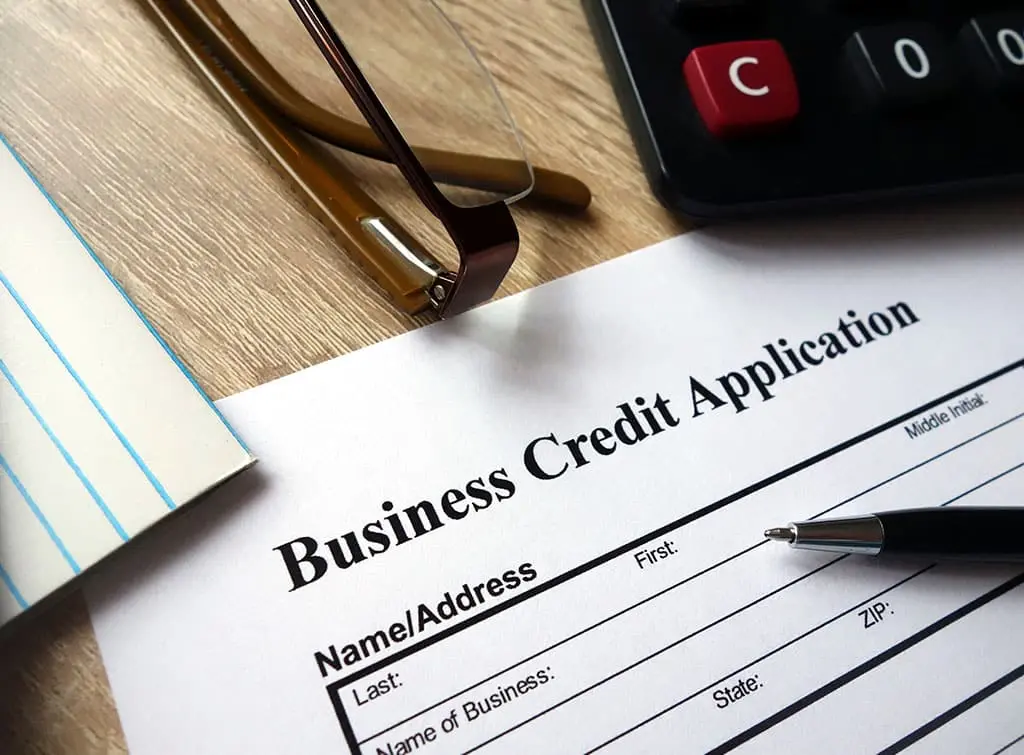Blog>Trade>Finance>Top tips on how to get credit with a trade account
Last updated: 19 March 2024
Top tips on how to get credit with a trade account
Getting trade credit is an important part of running many businesses. A trade account can give you flexibility to carry out a job then pay for the materials later.

Trade credit accounts help tradespeople fulfil their customers’ needs without being out of pocket. This could be crucial if you're a for new tradesperson or small business. Getting trade credit helps remove the pressure on cash flow.
Tradespeople can usually access to main types of trade credit:
Finance credit – bank cards: credit and debit cards
Trade or store credit – a trade account offered by suppliers to tradespeople
What is trade credit?
Trade credit is an agreement with a supplier on terms agreed between them and a tradesperson. It allows a tradesperson to buy goods and services and pay for them later.
Is trade credit long-term?
The terms of trade credit are usually for payment within 30, 60 or 90 days. In other words, it is a type of free borrowing - so long as you pay what you owe on time. There are often penalties for late payment.

What's the deal with cash flow and trade credit?
Before we look at trade credit, let's talk about business cash flow. This is the money coming in and out of your business bank account. Trade credit can be a very useful way of smoothing out peaks and troughs in your cash flow.
Often, a customer only pays for a job when it is finished. If you have to buy goods and materials to do the work then you could potentially face cash flow problems.
Learning how to smooth your business income flow is a handy skill to have if your income is irregular and you don’t feel that payments are coming in a reliable pattern.
To learn more about this topic, read our free guide on helping business to take off.
Using bank credit and debits helps a trade business to manage cash flow. You'll need to apply to your bank for this type of credit require. There will be terms and conditions to meet.
Enjoy exclusive member benefits
Trade credit accounts can boost your business
What are trade credit advantages and disadvantages?
Don't rush into taking out trade credit until you've weighed up the pros and cons.
Advantages of a trade account
Improve your cash flow with cash-free purchases and interest-free credit during the agreed repayment period
Reduce the need for extensive paperwork and form filling to obtain the credit – many suppliers make the process easy for tradespeople
Get ahead of competitors by getting hold of goods and products as soon as you need them
Boost your sales and profits by being able to take on more work
Build up a good credit history that improves your business reputation and professionalism if you want to apply for other types of loans or finance
Take advantage of special offers and deals from suppliers
Disadvantages of a trade account
Interest is charged on overdue amounts on your trade credit account and can be made daily until the outstanding amount is settled
Goods can also be repossessed if they haven't been paid for under the terms of the trade credit agreement
Legal action could be taken if you fail to pay on time
You might be prevented from making other purchases with the supplier until an outstanding trade credit balance is settled
If you pay late your repayment terms may be changed and you have pay earlier
You could become reliant on only a handful of suppliers which might restrict your access to products and goods

How can Checkatrade members save on essentials with a trade account?
Here are some examples of useful trade accounts. Checkatrade members can access a wide range of trade account benefits.
Contact us now if you want any help or information about Checkatrade membership benefits.
Selco - offers tradespeople same and next-day delivery - Checkatrade members can save on plants, tools and materials
TradePoint - B&Qs trade-only arm - Checkatrade members can obtain trade discounts on purchases
Plumbworld - if your trade is involved in bathrooms, kitchens and heating then Plumbworld trade credit could come in handy
Want to grow your business?
This FREE e-book shows you how

What is the process for setting up trade credit?
When going into your first negotiation for trade credit, make sure you are ready with the information the supplier might ask for. You need to be able to demonstrate your reliability when it comes to paying.
Here are our top recommendations to get going with trade credit:
1. Kick-off your new trade account with cash
One of the most common ways of building this history of reliability is to pay with cash or credit card, in the beginning, to prove that you can pay on time.
2. Go basic and build-up
If you haven't had any trade credit before, you need to find the most basic credit to apply for. It will help build up your credit history, just as you would your own personal credit rating.
Get one good trade account up and running with positive feedback and ongoing negotiations become much easier as you can demonstrate a trustworthy profile.

3. Meet them face-to-face
The best tip for a tradesperson is to go to the supplier in question and speak directly to whoever handles the credit. Introduce yourself and your financial plan. Meeting face-to-face may appeal to the supplier and could contribute to their view of you as a trustworthy, responsible buyer.
The supplier may have special terms available to new businesses to help you gain a credit history.
4. Get your references together
Collecting a strong handful of trade references will set you up for a great application. These references need to prove that you are reliable and that you consistently make payments on time. Choose references from the suppliers you already deal with in your industry, rather than utility bills or similar documents that you would typically expect for a personal credit check.
Key takeaways
A trade account allows you to buy goods and pay for them later
Trade credit helps small business to balance its cash flow more effectively
A trade account usually sets repayment terms of 30, 60 or 90 days
Trade credit is an interest-free way of borrowing money to buy goods – so long as you pay for them on time
Having a trade account that you manage well can help with the creditworthiness of your business
Enjoy exclusive member benefits
Trade credit accounts can boost your business


